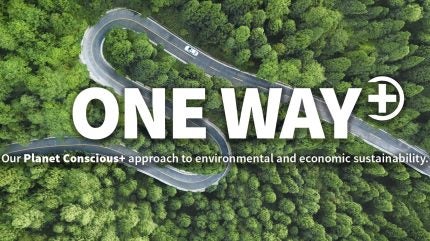
Archroma’s One Way+ programme aims to optimise efficiencies within the supply chain and engage with suppliers aligned with target sustainability commitments.
It also seeks to provide a better understanding of the sustainability status of existing suppliers and how they affect the wider apparel supply chain.
Archroma Textile Effects market segment director, CEL and blends, WO casual, formal and home textiles, Anish Paliwal said: “Brands and mills face unprecedented pressure today, with rising demand for sustainable products and operational challenges related to water and waste management and stringent compliance requirements.”
He explained the One Way+ programme offers expert support to achieve sustainability targets and comply with relevant regulations and standards at the same time as significantly enhancing product quality, performance and added value.
The programme has a three-stage approach that starts with establishing a baseline. It is followed by process design and implementation, and concludes with ongoing improvement.
Tailored for selected clientele, the solution is said to tap into the expertise of a specialised team of Archroma processing experts and use advanced tools and technologies, such as Archroma’s One Way Impact Calculator coupled with its Sustainability Improvement Programme.
The journey is said to span a baseline audit to results review that typically extends over 16 weeks with a team of two to three Archroma experts collaborating with the customer’s technical teams.
Archroma cited its achievements from the initiative so far as including:
- A textile mill in China cutting its processing time by 30% while reducing water and steam requirements by 40% and achieving a 10% RFT improvement
- A textile mill in Peru reducing water and steam usage by 20% while slashing processing time by 30%
- A textile mill in Argentina reducing water consumption by 40% and steam usage by 20%
- A textile mill in India improving productivity by 15% while achieving 95% right-first-time (RFT) processing and 0.5% quality rejection.
Paliwal added: “This approach reflects our ‘Planet Conscious+’ vision of partnership and innovation that helps brands and mills bring their ideas, products and potential to life with a positive impact on their economic and environmental sustainability.”



